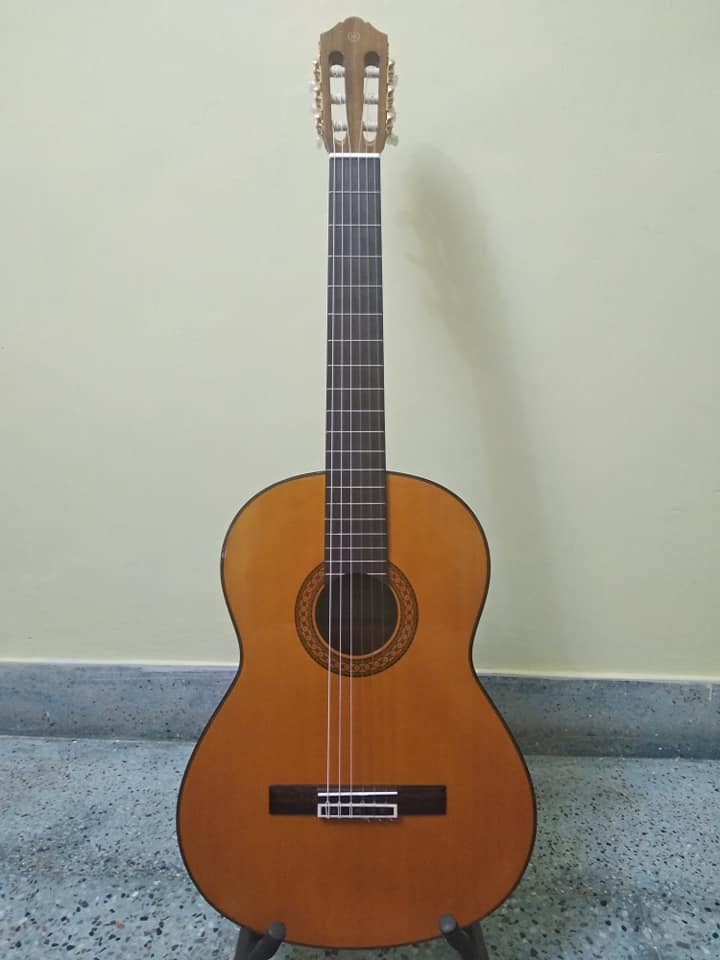
Welcome new readers to my first gear review. In November 2019, I purchased a new classical guitar – Yamaha C80. And after playing it for almost two years, I have fallen in love with it.
Also, I shall be covering why the Yamaha C80 is better than C40 and why you should consider buying this as your first classical guitar.
Overview
Yamaha Corporation initially started as a musical instrument company when the founder Torakusu Yamaha, was asked to fix an organ of a local primary school. Fast-forwarding to 2021, Yamaha Corporation is now a multi-million dollar corporation and the world’s largest manufacturer of pianos.
Yamaha is also known for its wide range of guitars, which include the famous Yamaha Pacifica and the classical guitar range. Do note that this guitar should not be confused with a flamenco guitar.
The C series is a special entry-level series of classical guitars for young students and beginners who want affordable and good quality classical guitars along with the well-known name of Yamaha.
The series starts from the affordable C40 and goes to the C80 – the category’s top of the line product. The C40 is made up of “locally sourced tonewood”, however, the C80 sounds best in the following ways:
The sound
Priced at around INR 12,000, the sound of this classical guitar is round and deep as compared to the bright and open acoustic guitar. The sound is like playing a grand piano and each note just opens up with the right intonation.
Check out this video to listen to the real sound of the instrument.

The body
The body, sides and neck of the Yamaha C80 are made of nato wood while the top is laminated spruce and the fingerboard is rosewood. Also has a thicker body as compared to a standard acoustic guitar.
This, greatly affects the tone and the sound coming out from the soundhole, especially due to the solid spruce top. The construction and weight factor.

This classical guitar has a set-neck and does not have a truss rod or locking tuners. Plus the hollowed body decreases its overall weight and increases portability.
It weighs almost roughly 1.3-1.5 kgs, which is half the weight of my acoustic guitar.
The comfort and joy of playing
The flat 52 mm fretboard is the biggest selling point of this guitar, with rolled fret edges and a “C” shaped neck profile.
This makes holding even the most complex shaped chords a breeze and the nylon strings (instead of the standard steel strings) just adds the spice and makes it so much comfortable to play.
Trust me, your fingertips will love you for this. I can now play twice as long using only my fingers for picking and playing. “Guitar-Heaven” unlocked.
Final Words

So after playing this musical instrument for almost 2 years, I have realised the following:
- It does require slightly more maintenance than the acoustic guitar.
- The neck and action adjustment need extra care. It should be done by the hands of a professional only.
- Yet, the playing comfort cannot be described in few words and the nylon strings are just the cherry on top.
The only modification I have made till now is:
- lowering the action to 4mm (Low-E string)
- 2.5 mm (High-e string) at the 12the fret by sanding off the bridge saddle.
Also, I now use the “hard-tension student series” strings from Daddario instead of the stock “normal-tension” strings.
The classical guitar has remained the unsung hero of guitars and deserves much more popularity than the acoustic guitar.
So if you are looking for comfort, lightweight and deep/warm sound, a classical guitar is the best weapon of choice.




